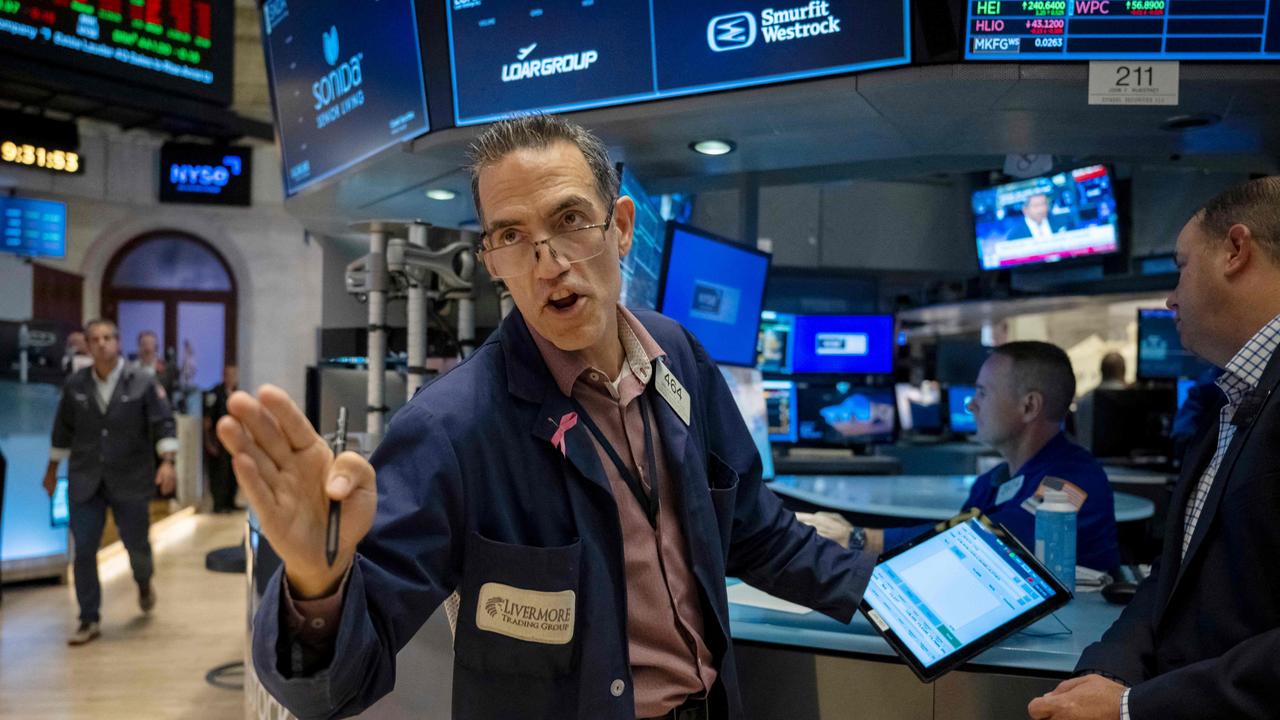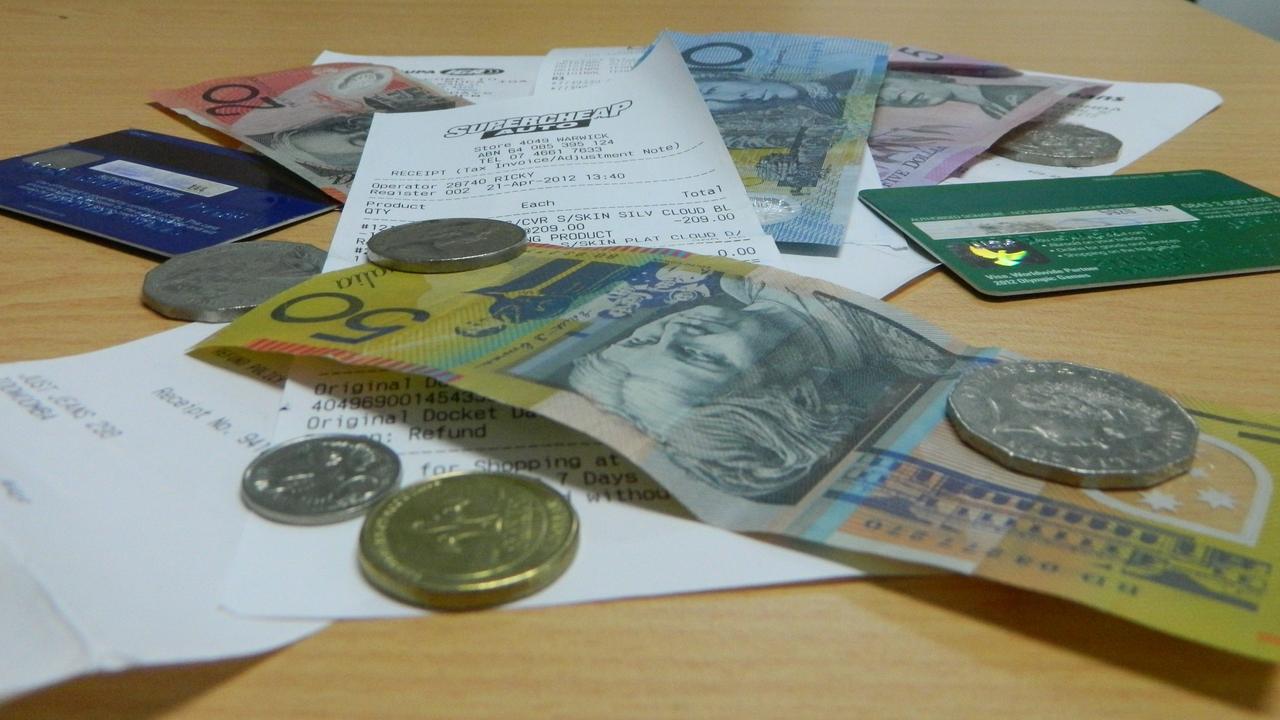Super funds face more stress testing as markets stir
The nation’s super funds will be required to lift their game just as bond market turmoil is putting their UK counterparts under extreme pressure.

Business
Don't miss out on the headlines from Business. Followed categories will be added to My News.
The financial regulator plans to shortly release its final version of a new set of rules requiring super funds to lift their game on how they value their unlisted holdings while developing more thorough and regular stress tests for their massive investment portfolios.
The finishing touches to the swath of rules being developed by the Australian Prudential Regulation Authority come as extreme pressure is being placed on major UK pension funds given bond market turmoil there. Following the collapse in UK bond values sparked by the release of the Conservative government’s mini budget last month, funds there have been forced to dump assets to find cash to pay out their “liability-driven investing” strategies.
Thankfully Australian super funds have been able to sidestep the worst of the bond market turmoil. Unlike the UK, there are rules already in place here that restrict the use of leverage at the fund level to power investment strategies. But the stresses in recent weeks are expected to shine a light on how super funds have been working with private equity in recent years to launch buyouts.
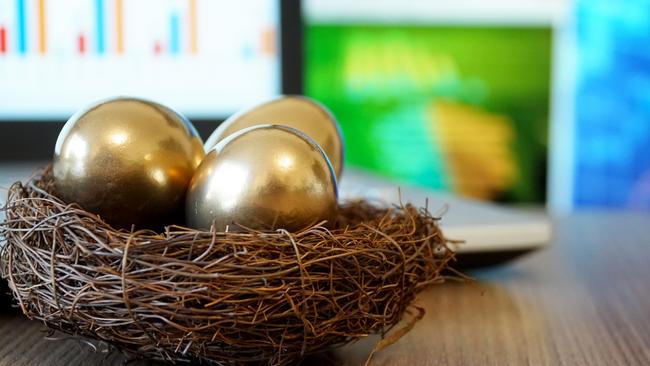
The new super standards will be released in coming weeks and after more than a year in development APRA hopes to have them in place by the start of January. Among measures they will force super funds to more frequently value their holdings in unlisted assets such as tech start-ups to infrastructure.
The rules seek to improve governance around the valuation of unlisted assets, including using independent experts and split valuations from investment decisions. The changes also call for super fund boards to be more actively involved in monitoring unlisted valuations. This is designed to ensure funds have a more accurate snapshot of their investments.
Australian payments start-up AirWallex which includes Hostplus as a backer last week stuck to its $US5.5bn ($8.9bn) valuation in its latest raising. The valuation – issued by the AirWallex not Hostplus – was unchanged from November last year despite the dramatic crash in technology stocks around the world since late last year. Hostplus, which has $89bn under management, declined to comment.
The rules, called SPS 530, also require super funds to improve stress testing processes to ensure they can handle market shocks.
“Periods of recent heightened volatility in investment markets have demonstrated the need … to develop comprehensive stress testing programs,” APRA has said in a guidance note to super funds.
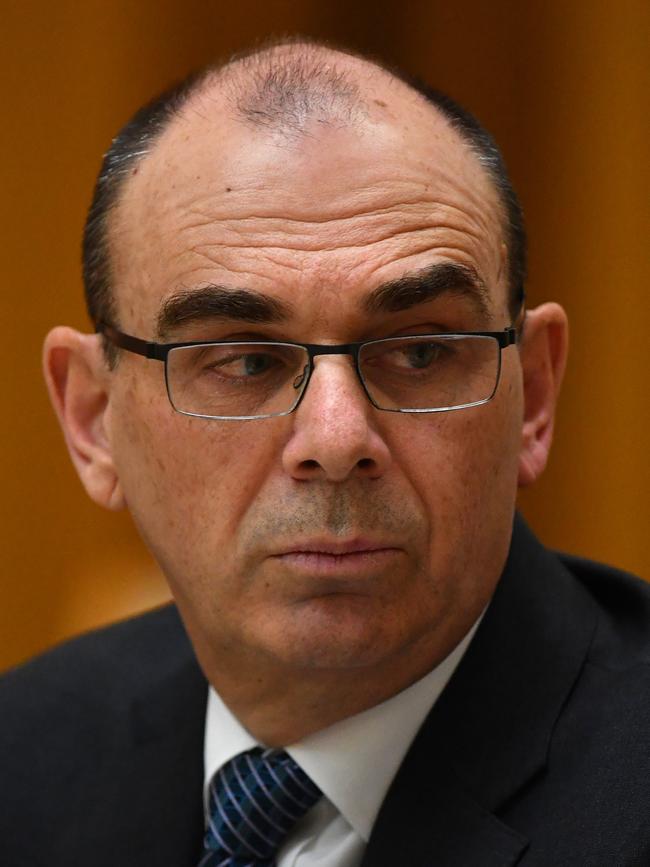
This includes stress testing a situation where a fund is facing “severe but plausible cash outflows; severe negative impacts to valuations and consequences for the investment portfolio and liquidity at the most granular possible/practical level”.
Australian super funds are already experiencing some of their worst returns since the global financial crisis, with falls on global markets seeing balanced fund options returning an annualised drop of 5.7 per cent at the end of September, according to latest monthly figures from SuperRatings.
A chief investment officer of one major super fund said the UK stresses mean liquidity is being closely watched at the moment – with funds holding high levels of cash and liquid assets highly sought after.
The spike in UK government bond yields led to a collapse in the value of interest rate derivatives, requiring collateral calls on some UK pension funds. Some Australian fund managers including Magellan became caught up in the stampede as clients liquidated billions to quickly raise cash.
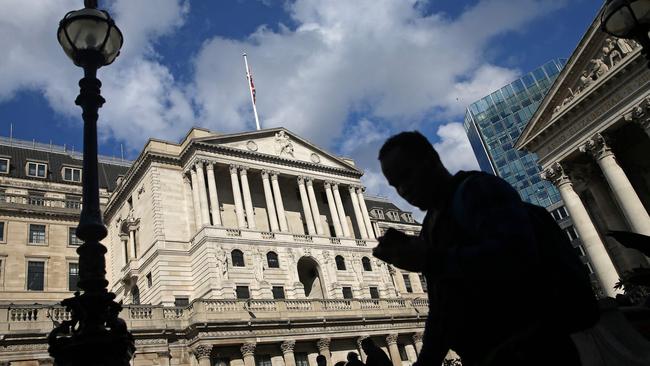
The Bank of England was forced to step in to calm markets to buy tens of billions of pounds worth of long-term government bonds that underpin the UK pension system.
Ratings agency Fitch in recent days called out one Australian life insurer that uses similar derivative arrangements on a portfolio of government bonds. While Fitch declined to name the insurer the ratings agency said the fund had “ample liquidity” support for its leveraged investments.
Markets will be tested in the coming days after new British Prime Minister Liz Truss sacked the country’s chancellor Kwasi Kwarteng over the weekend. New chancellor Jeremy Hunt is attempting to wind back some of the more expansionary policies floated by his predecessor.
Overnight Friday JP Morgan & Chase chief executive Jamie Dimon told investors he was surprised about how much leverage was sitting in UK pension funds. However he felt the banking system was able to withstand the stresses.
“We don’t see anything that looks systemic, but there is leverage in certain credit portfolios, there’s leverage for certain companies — there is leverage,” Dimon said.
Outgoing APRA chairman Wayne Byres will speak in Sydney this week, where he is expected to touch on a range of issues from the impact of rising interest rates on housing stress, super returns and cyber attacks.
‘Ridiculous values’
James Gorman, the Australian-born chief executive of Wall Street bank Morgan Stanley says rising interest rates around the world will bring an end to “ridiculous stuff” such as surging bitcoin and listed companies will again trade on their fundamental value.
The investment banking boss said while there will be more disruption to come on global markets, no-one should be surprised by the massive inflation breakout following years of near zero interest rates.
Gorman – who grew up in Melbourne – believes the US Federal Reserve Bank will be successful in containing the inflation breakout there. Clarity on how it is going in its fight should be likely by the middle of next year.
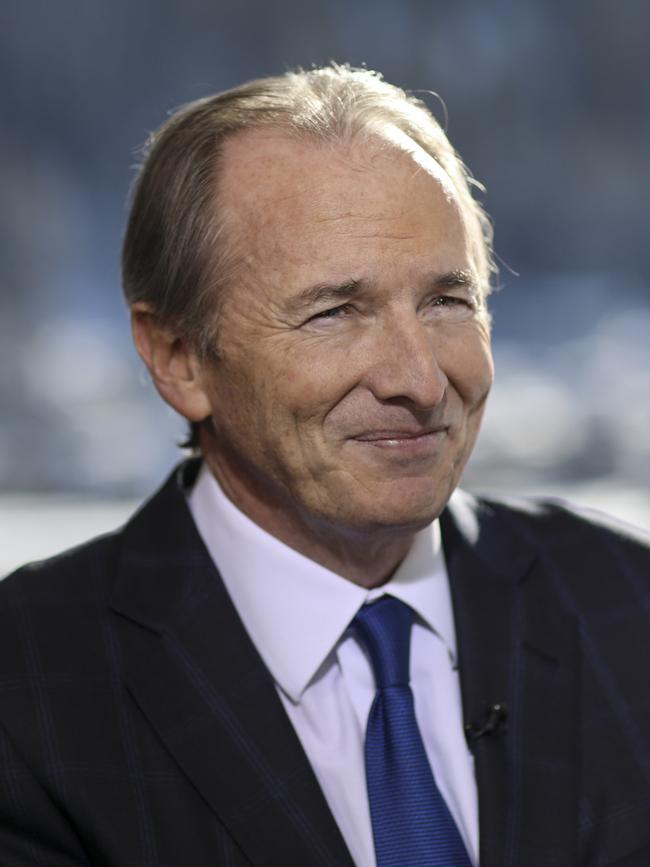
The Morgan Stanley boss stopped short of calling a recession as he spoke to analysts on the investment bank’s third quarter earnings call but said there will be “consequences” as he tipped US interest rates to move to the mid-4 per cent mark, from its current base level of around 3 per cent. He was speaking to investors following another heated inflation reading in the US with prices rising at an annualised rate of 8.2 per cent in September. This sparked another round of heavy selling on US markets on Friday night with the broad S&P 500 down 2.4 per cent.
“It shouldn’t be surprising what’s going on in the market,” Gorman told investors. “So I’m kind of surprised every time I see somebody on TV who seems surprised by it. We had zero interest rates for a decade. We have massive monetary and fiscal stimulus. We have the first land war in Europe in 70 years. The highest inflation in 40 years, and the (US) Fed had to move,” Gorman said.
While he believes the US Federal Reserve started hiking rates too late, they have a determination to get inflation under control.
“You’re going to see some disruption…Some of the more ridiculous stuff that’s been in the market in the last few years, company is trading at 50-times revenues, what’s gone on with Bitcoin trading at $US60,000 ($96,800) – what’s going on in some of the GameStop and other companies where there’s been these sort of aberration type trading,” he said.
“That’s been washed out. And that’s okay. We’re back to sort of fundamentals,” he said.
Bitcoin became the symbol of excess liquidity flowing around the market in recent years with the virtual currency soaring to more than $US64,000 last November but has since pulled back sharply as interest rates around the world started rapidly rising. Bitcoin last traded at $US19,000.
For the most part, Gorman believes businesses are “realistic” about the prospect of rising interest rates knowing that the zero rate environment was unsustainable. Most of the pain will be felt across unlisted start-ups which are no longer receiving sky high valuations.
“We’ve moved to a normalised (rate environment) and obviously, we’re going to go a little higher than that to beat inflation back, but people are adjusting to that. I think the ones that are struggling still, companies that — private companies that were valued at, let’s just say, spotty levels and they’re doing new rounds and they’re finding they’re just not paid at the same ….And that’s hard to accept as an entrepreneur, it’s their baby and they want to believe that it’s what it was at the peak”.
JPMorgan & Chase’s Jamie Dimon was more cautious saying there’s a “possibility of a mild recession” in the US next year, although there was also a chance of a soft economic landing.
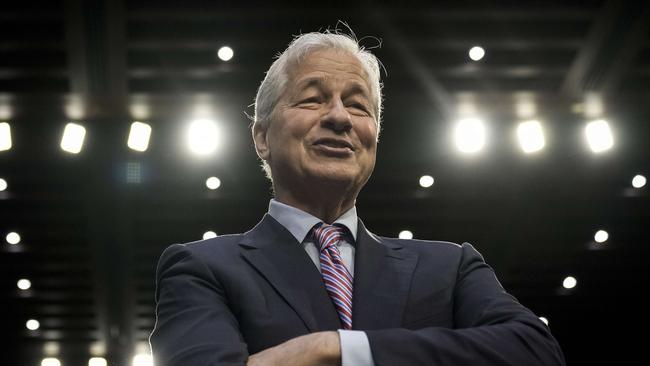
“Consumers are in very good shape, companies are in very good shape. And there’s possibility (of) something worse, mostly because of the war in Ukraine and oil price and all things like that,” Dimon said during JP Morgan’s quarterly earnings update.
JP Morgan’s September quarter earnings fell 16.6 per cent although revenue was up 10.3 per cent during the quarter. Morgan Stanley posted a 25 per cent drop in quarterly earnings as investment banking and asset management revenue fell. Earnings updates for the investment banks can often set the tone for ASX-listed Macquarie Group.
johnstone@theaustralian.com.au
Originally published as Super funds face more stress testing as markets stir


